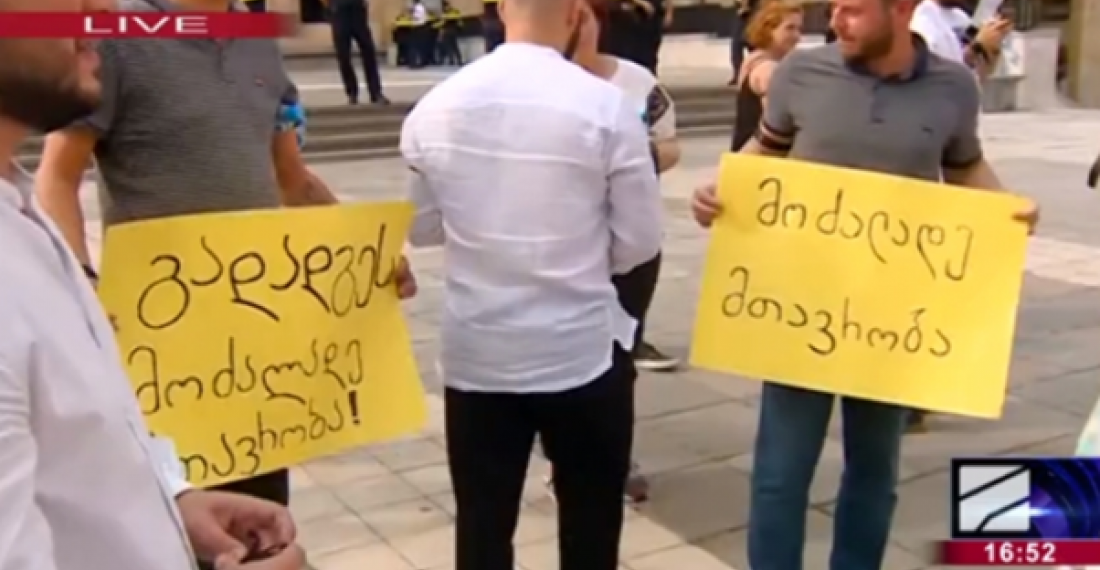The Georgian prime minister, Irakli Garibashvili, came under pressure to resign on Sunday (11 July) following the announcement that one of dozens of journalists hurt when right wing vigilante groups attacked them on Monday ahead of a planned gay rights march which was eventually cancelled had died.
19 Georgian civil society organisations, including the Georgian Young Lawyers Association, Transparency International Georgia, ISFED and others called for the immediate resignation of the prime minister of Georgia, Irakli Gharibashvili, and the minister of internal affairs of Georgia, Vakhtang Gomelauri, and asked that all organisers, participants, and instigators of violence, regardless of their status, be brought to justice.
The organisations expressed their utmost concern and sorrow over the passing of Lekso Lashkarava, the operator of “TV Pirveli”, whose death was reported on Sunday morning. The statement added:
"Lekso Lashkarava was one of more than 50 media professionals targeted by hate groups during the large-scale and violent protests on July 5. During the demonstrations against the “March for Dignity”, violent and aggressive groups deliberately singled out and attacked media representatives, inflicting physical injuries and engaging in verbal abuse, as well as deliberately smashing equipment to interfere with journalistic activities. These groups physically assaulted Lekso Lashkarava during the raid on the office of the civil movement "Shame". According to the journalist who was along with the cameraman during the incident, Lekso Lashkarava was lying in a pool of blood and 20 people were mercilessly beating him for 5 minutes.
The authorities have not taken measures to stop the violent groups despite being aware in advance of the risk of aggression and violence on their part. On July 5, an insufficient number of law enforcement representatives were mobilized on the spot, and actions taken by the police were not sufficient to put an end to the violence. The authorities did not ensure the protection of public safety, health, and life - on the contrary, they encouraged the violence. In particular, the Prime Minister, Irakli Gharibashvili, stated on July 5 that holding the "March for Dignity" was inappropriate and called on the organizers of the "March for Dignity" not to march on Rustaveli Avenue, instead of blaming the members of the counter-rally for the possible escalation of the situation. The US ambassador to Georgia also stated that they did not see the Prime Minister playing a leading role in defusing the situation and putting an end to the violence.
Following the large-scale violence of July 5, which resulted in dozens of injuries to journalists and civilians and the death of the operator of “TV Pirveli” after sustaining serious injuries, all organizers, participants and perpetrators of violence, regardless of their secular or religious status should be brought to justice."
"The political responsibility for the severe consequences lies with the government, which has in fact refused to perform its function to protect human health and life", the civil society organisations called in their statement.
In the Georgian capital, Tbilisi, groups of protestors together with opposition leaders have been congregating in front of the parliament and other locations throughout the city on Sunday evening, amid increased tension.
source: commonspace.eu
photo: Members of the opposition LELO Movement protest outside the prime minister's office in Tbilisi on 11 July 2021 (screen grab from Rustavi2 TV)






